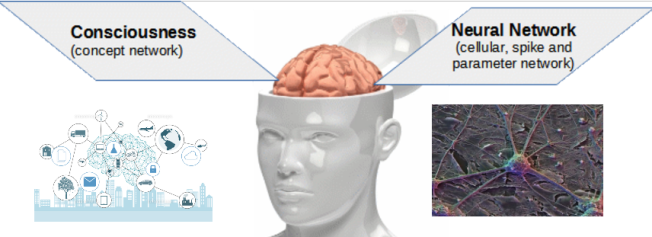GTOM: Difference between revisions
From MediaWiki
No edit summary |
No edit summary |
||
| Line 24: | Line 24: | ||
The coexistence of: (1) cellular network; and (2) Mind and Consciousness network within the same physical structure—the brain—suggests a deep interconnection. GTOM focuses on defining and understanding this connection, aiming to uncover how these systems interact and influence one another.<div></div> | The coexistence of: (1) cellular network; and (2) Mind and Consciousness network within the same physical structure—the brain—suggests a deep interconnection. GTOM focuses on defining and understanding this connection, aiming to uncover how these systems interact and influence one another.<div></div> | ||
== See also == | |||
[[OPNT]] | [[OPNT]] | ||
[[OPNT]] | [[OPNT]] | ||
Revision as of 07:29, 16 December 2024
Gativus Theory of Mind and Consciousness (GTOM)
The Gativus Theory of Mind and Consciousness (GTOM) is a set of axioms and hypotheses aimed at explaining the phenomenon of human consciousness.
Axiom #1: The Human Brain and Multiple Networks
- The human brain:
- Consists of cellular tissue, in fact - network, and
- Produces Mind and Consciousness.
Networks in the Brain
The brain’s primary tissue is composed of neurons, interconnected by synapses to form biological neural networks. These networks vary in their:
- Purpose, reflecting the brain's diverse functional roles.
- Construction, determined by the types of neurons and synaptic connections.
Mind and Consciousness
Mind and Consciousness are phenomena universally and intuitively acknowledged, even if not fully understood.
The coexistence of: (1) cellular network; and (2) Mind and Consciousness network within the same physical structure—the brain—suggests a deep interconnection. GTOM focuses on defining and understanding this connection, aiming to uncover how these systems interact and influence one another.
